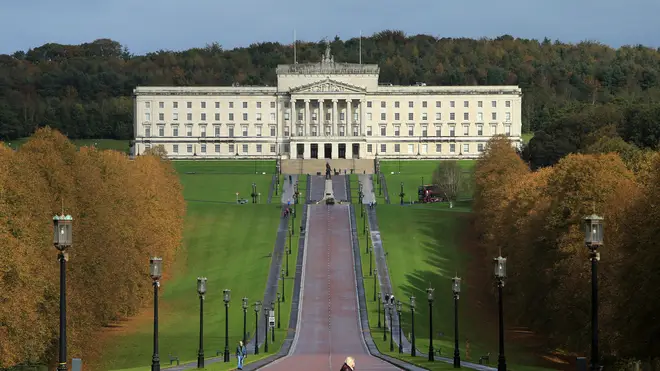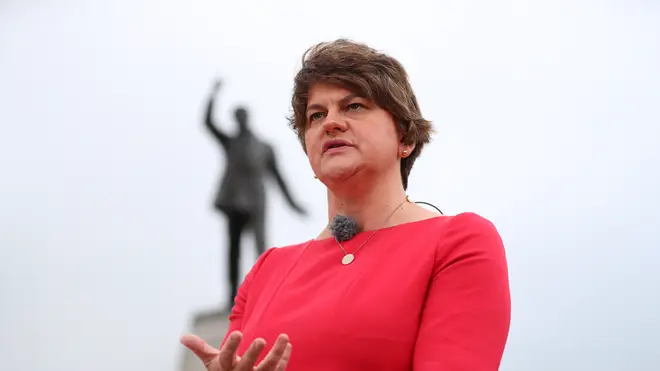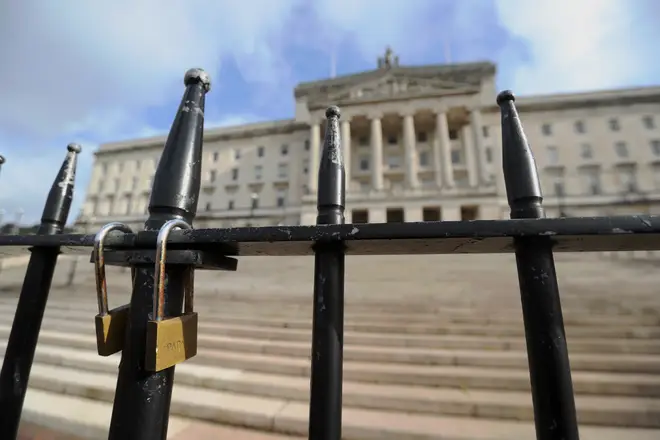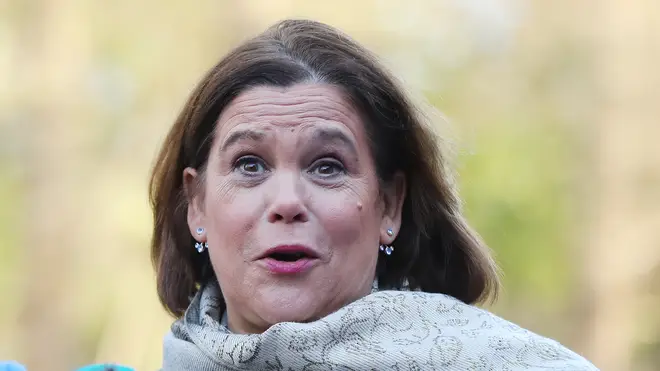
Ian Payne 4am - 7am
2 January 2020, 10:12

Northern Irish politicians are resuming talks to restore power-sharing in Stormont on Thursday morning.
Talks were paused over the holiday season after having been rekindled in the wake of the December general election.
The latest process saw a pre-Christmas deal fail to materialise, three years on from the collapse of the devolved government.
A deadline of 13 January is in place for the Stormont parties to strike a deal to revive the institutions, otherwise legislation that gives civil servants additional powers to run the region's struggling public services will expire.
In that case, Secretary of State for Northern Ireland Julian Smith will be obliged to call a snap Assembly election.
Power-sharing talks broke up the week before Christmas, with both the UK and Irish governments suggesting the DUP was preventing a deal.

Arlene Foster's party rejected the claim, saying it would not be "bounced" into a "quick fix" that falls apart when tested.
For devolution to be restored, the two main parties in Northern Ireland - the DUP and Sinn Fein - must agree on terms to re-enter a mandatory coalition executive in Belfast.
The SDLP, Ulster Unionists and Alliance are all also involved in the process that is being assembled by the UK and Irish governments.
Those smaller parties could take positions in a new executive, however their ratifying of a deal is not essential and a government could be formed without them.
Following a tough general election for the DUP and Sinn Fein, expectations of a power-sharing breakthrough were on the rise, with fresh momentum appearing to help the process in December.
However, proposals to reform a contentious cross-community voting mechanism in the Assembly have emerged as a key sticking point in efforts to finalise an agreement, with the DUP unhappy about what is being countenanced.

Ms Foster's party is also seeking changes to ensure the devolved institutions are more stable in the future and cannot be easily pulled down.
Another crucial element of the negotiations is the proposed legislative protections for Irish language speakers.
The Stormont parties are also seeking firm commitments from the UK government on a financial package to accompany the return of devolution - money that would likely be targeted at the region's crisis-hit health service.
Ireland's deputy premier Simon Coveney and Mr Smith were in Belfast on New Year's Day for pre-talks discussions ahead of the resumption of formal exchanges with the political parties.
Mr Coveney urged figures from across Northern Irish politics to show leadership and generosity.
He said the new year offered a chance for a new beginning and urged all sides not to disappoint the public again.

DUP leader Arlene Foster said her party stood ready to restore devolution through a "fair and balanced deal".
"A Northern Ireland that is going to keeping moving forward must be one where everyone feels at home but must also be one where no one feels their culture is being marginalised," she said.
While Ms Foster warned that a focus on a potential border poll would lead to a "wasted decade", Sinn Fein president Mary Lou McDonald insisted a united Ireland was within reach.
But the republican leader added: "There is no contradiction in working for Irish unity and working for the restoration of the Executive and Assembly - they are all part of the Good Friday Agreement.
"The outstanding issues can be resolved. The time for acrimony and division is over. The time for slogans and soundbites is over. The test now for every party that has talked up getting back to work is to go back to the Executive table and deliver."
Stormont imploded three years ago this month when the late Sinn Fein deputy first minister Martin McGuinness resigned in protest at the DUP's handling of a botched green energy scheme.
That dispute soon widened to encompass traditional rifts over issues such as the Irish language and the toxic legacy of the Troubles.